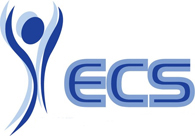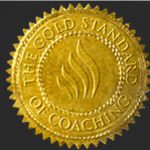In business, leaders must be consistent in what they say and do. If there is no consistency in their actions, then their credibility becomes questionable.
While our leadership styles may be unique, our behaviors establish how we are perceived by those we lead. My topic for this blog is “Predictable”.
Leaders must understand what being predictable means and how it affects relationships, productivity and performance excellence.
PRINCIPLE #6: PREDICTABLE
What It Means: Your behavior is consistent with your promises. Those around you know what to expect, and this expectation makes you predictable. You are authentic.
"I like predictability because I know what I'm getting into." ~Katherine Heigl
Like Dickens had A Tale of Two Cities, I have a tale of two leaders. One leader is very open with her clients and staff. She engages in a dialogue with them to communicate her vision and how it will shape the company’s future. With her open door policy, employees are able to enter her office and voice their concerns or make suggestions. When this leader is interacting with her staff or clients, she is very authentic in her demeanor. She fosters an environment in which employees want to thrive and do their best and clients feel that their needs have been met.
The other leader presents a sharp contrast.
He has a very close-minded view of interacting with his staff. He keeps his thought processes to himself and only reveals the end result—policies or processes that he wants to start. He does not care to listen to his employees’ feedback. This leader thinks that the only time employees should approach him is when he has called them in for annual performance reviews. The staff never feels at ease because this leader is prone to change at any given moment.
Which leader is being the most effective?
Leaders who are predictable demonstrate consistency, and consistency builds trust within an organization. Spontaneity may work best in personal relationships, but in the business world, employees prefer leaders who stand by their promises and deliver what they have come to expect.
A Thought for Reflection
“Leaders are best received when they remove their halos of greatness and perfection.” ~Barbara Tolliver-Haskins
In my previous blog, I discussed how leaders must exhibit a strong resolve and calm demeanor when dealing with tough and turbulent times. The ability to demonstrate strong resolve during turbulent times to others during turbulent times is a great illustration of of the value of one's being predictable. The one thing we do not need during turbulence is chaotic and inconsistent leadership.
How can you be more predictable?
One way you can answer this question is to secure feedback from those who look to you for leadership.. This gathering could be similar to a focus group. You create a meeting with the setting in a common area, and methodically lead to a point where your leadership becomes the focus. This meeting is not designed to bash you. I suggest that you have an agenda, maybe certain processes or policies that you have recently implemented in the past year or two. Ask for specific feedback on what worked and what can be improved. Seek feedback on the quality of the decisions made, and ask if there is a feeling that the decisions made are consistent and align with the goals and directions of the organization.
Finally, seek feedback with questions focused on your personal approachability. Ask how you can become better and speciafically ask if there is a feeling of trust and approachability. Step out of your comfort zone and learn how you can become more predictable as a leader.
Yet another suggestion is to schedule one-on-one sessions with different departments or siimply with individuals to gain feedback on your leadership style. You may also want to do an informal survey and create it online through a website like Survey Monkey.
Now, once you have gathered this information, what should be your next step?
Next Step: Self-Evaluation
“Until we can clear away the smoke and mirrors and look honestly at ourselves, we have no starting point for change.” ~Jim Loehr
I like to call this exercise a process memo. It is a self-evaluation in which you process the feedback through writing. Write about your reflections on the feedback. Identify what your staff has shared as your strengths and growth areas. Reflect on what you initially perceived about your leadership style. Discuss strategies on how you can be more approachable, authentic and consistent. Come up with one to three actionable tasks to enact change and move you toward grasping the benefits and positive outcomes, associated with the leadership principle of predictability.
Navigating the Course to the Next Principle
My next principle will cover how exceptional leaders respect the time of others and know how to reach out to them when help is needed.
I would appreciate your comments and reactions to any of the blogs that I have presented for your reading and reflections.
Need a plan of action to develop exceptional outcomes in your leadership or clarify those behaviors that may impede your progress? Executive Coaching Solutions will help you discover your unique talents and attributes that will enable you to bring life to your dreams and long range expectations. Contact me today for an introductory consultation on how we can help you to be “all that you can be.”


